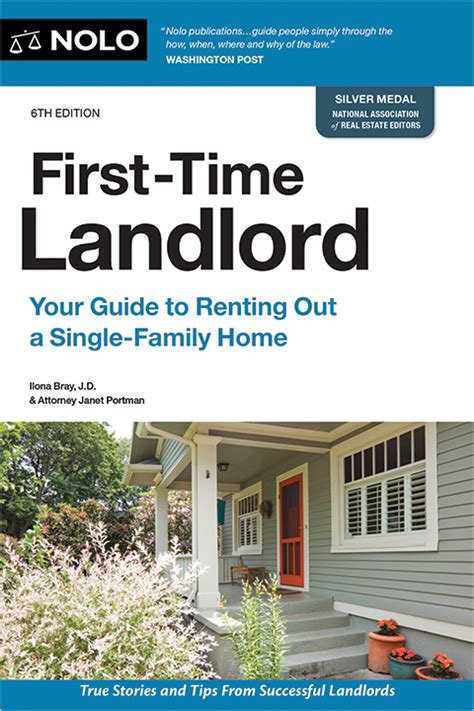Navigating the complexities of tenant rights can be challenging, especially when facing legal issues without proper guidance. In our article, “Free Legal Aid for Renters: Expert Tips and Community Insights for Navigating Tenant Rights,” we provide essential information to help renters understand their rights and access free legal aid. From eligibility criteria to common legal issues and eviction proceedings, our comprehensive guide covers everything you need to know. Learn how to find legal aid organizations, resolve disputes, and leverage community support networks. With expert tips and real-life success stories, you’ll be empowered to handle your tenancy challenges with confidence.
Let’s examine this topic closely with bzcat.xyz
1. Understanding Tenant Rights
Tenant rights are the legal safeguards and benefits renters have when occupying a property. These rights differ based on location, but commonly include the right to a secure and livable living space, protection from discrimination, and the right to privacy. Recognizing these rights is essential for renters to guarantee fair treatment and effectively address any problems that might occur during their tenancy.
A fundamental right is the right to a habitable home. This means landlords are obligated to maintain their properties in a safe and livable condition. This includes performing necessary repairs and adhering to health and safety codes. Tenants also enjoy the right to privacy. Landlords cannot enter rental units without proper notice and a valid reason, except in emergency situations.
Tenants have significant rights against discrimination. Federal fair housing laws prohibit landlords from discriminating against tenants based on race, color, religion, sex, national origin, familial status, or disability. Furthermore, many localities offer expanded protections, prohibiting discrimination based on sexual orientation, gender identity, and source of income.
Knowing their tenant rights empowers renters to be proactive advocates for themselves and address issues effectively. This knowledge serves as the cornerstone for navigating the intricacies of renting, fostering a fair and respectful rental experience.

2. Eligibility Criteria for Free Legal Aid
The availability of free legal aid can fluctuate significantly based on geographic location and the particular legal aid organization. Typically, these services aim to help low-income individuals who lack the financial means to engage legal counsel. Most organizations evaluate eligibility using criteria such as income level, household size, and the nature of the legal matter in question.
Most legal aid organizations use income level as a primary qualification for assistance, establishing a maximum income threshold. This threshold is typically based on the federal poverty guidelines, with many organizations offering aid to households earning less than 125% of the poverty level. However, some organizations may have slightly higher thresholds, particularly for certain cases or vulnerable groups.
In addition to income, the nature of the legal issue is also crucial. Legal aid is commonly available for cases involving housing, such as eviction defense, habitability issues, and disputes with landlords. Other areas might include family law, public benefits, and consumer rights.
Certain groups may receive priority for legal aid services, including veterans, elderly individuals, and victims of domestic violence. By meeting these eligibility criteria, renters can access the vital legal assistance they need to protect their rights and resolve disputes effectively.

3. How to Access Free Legal Services
Finding free legal services starts with locating local legal aid organizations. Many communities offer non-profit agencies specifically designed to help low-income individuals with legal matters. To begin your search, try looking online for legal aid organizations in your area. Alternatively, you can contact your local bar association, as they frequently compile lists of available resources.
After identifying potential legal aid organizations, contact them directly. Most services conduct an initial screening to assess eligibility. During this screening, be prepared to provide details about your income, household size, and the specific legal issue you are facing.
Furthermore, community centers, libraries, and social service agencies can serve as valuable resources for locating legal aid. Many organizations provide free legal clinics where individuals can obtain brief advice or assistance with particular legal matters. These clinics, generally staffed by volunteer attorneys, offer an excellent avenue to receive initial guidance on legal issues.
These steps enable renters to access free legal assistance, empowering them to effectively address their legal challenges.

4. Common Legal Issues Faced by Renters
Renters frequently face legal challenges during their tenancy. A common problem is disagreements concerning security deposits. Landlords may withhold security deposits without legitimate justification or make deductions for repairs or cleaning that are not warranted.
Another frequent problem is eviction. Renters may face eviction due to non-payment of rent, lease violations, or the landlord’s desire to reclaim the property. Understanding eviction laws and having legal representation can help tenants defend against unjust evictions.
Habitability issues also plague many renters. Landlords are required to maintain properties in a livable condition, but some neglect necessary repairs, leading to unsafe or unhealthy living environments. Tenants have the right to demand repairs and, in some cases, withhold rent until issues are resolved.
Rent increases and lease renewals can also pose challenges. Tenants need to understand their rights regarding rent control, notice periods, and the conditions under which landlords can increase rent or refuse to renew a lease.
Finally, discrimination is a significant concern. Tenants may face unfair treatment based on race, gender, disability, or other protected characteristics. Legal aid can help renters address these and other issues, ensuring their rights are protected throughout their tenancy.

5. Navigating Eviction Proceedings
Facing eviction can be a stressful ordeal for renters. However, comprehending the eviction process and knowing your legal rights can significantly ease the situation. Eviction proceedings usually start with a notice from the landlord, which must adhere to state and local regulations. This notice generally sets a specific timeframe for addressing the issue, such as paying overdue rent or rectifying a lease violation.
Failure to address an issue within the designated timeframe may lead the landlord to initiate an eviction lawsuit. Upon receiving court documents related to such a lawsuit, tenants must respond immediately. Neglecting these documents could result in a default judgment being issued against them, accelerating the eviction process.
Tenants possess the legal right to defend themselves in court. Common legal defenses include: improper notice provided by the landlord, landlord retaliation for tenant actions, discriminatory practices by the landlord, or the landlord’s failure to maintain the rental property in a habitable condition. Gathering evidence, such as communication records, repair requests, and photographs of the rental unit, can significantly strengthen a tenant’s legal position in court.
It is strongly advised to seek legal aid during eviction proceedings. Legal aid organizations can offer legal representation or provide guidance on the eviction process. Many of these organizations also offer resources and workshops to help tenants understand their rights and prepare for court appearances.
Tenants can safeguard their rights and potentially prevent eviction by understanding the eviction process and seeking appropriate support.

6. Dispute Resolution and Mediation
Dispute resolution and mediation are valuable tools for renters facing conflicts with their landlords. These methods offer a less adversarial and often more efficient way to resolve issues without going to court. Mediation, in particular, involves a neutral third party who helps both parties reach a mutually acceptable agreement.
One of the primary benefits of mediation is that it allows for open communication between tenants and landlords. This process encourages both sides to express their concerns and work collaboratively towards a solution. Mediators facilitate these discussions, helping to clarify misunderstandings and explore potential compromises.
Common disputes that can be addressed through mediation include repair issues, security deposit disagreements, lease violations, and rent increases. Mediation can lead to solutions that are more flexible and tailored to the specific needs of both parties compared to a court judgment.
To access mediation services, renters can contact local legal aid organizations, housing agencies, or community mediation centers. Many of these services are free or low-cost and are designed to help tenants and landlords resolve conflicts amicably.
In addition to mediation, other forms of dispute resolution, such as arbitration or negotiation, can also be effective. Arbitration is more formal than mediation and involves an arbitrator making a binding decision after hearing both sides.
By utilizing dispute resolution and mediation, tenants can address conflicts in a constructive manner, preserving their tenancy and maintaining a more positive relationship with their landlords.

7. Resources for Finding Legal Aid Organizations
Renters facing legal challenges need to locate legal aid organizations. Fortunately, there are numerous resources available to help renters identify and connect with these organizations.
To begin your search for legal aid, browse online directories dedicated to this service. Websites such as LawHelp.org and the Legal Services Corporation (LSC) feature searchable databases that match users with local legal aid organizations. These platforms take into account your location and legal needs, providing information on eligibility requirements, available services, and contact information for each organization.
Local bar associations offer a valuable resource for legal assistance. Many bar associations maintain lists of legal aid organizations and pro bono services within their communities. By contacting your local bar association, you can obtain referrals to reputable legal aid providers.
Community centers, libraries, and social service agencies are often valuable sources of information on legal aid resources. These organizations may also provide access to legal clinics or workshops, offering opportunities for free legal advice and assistance.
Furthermore, universities housing law schools often provide legal assistance through student clinics. These clinics offer free legal services to the community, staffed by supervised law students as part of their academic experience.
By utilizing these resources, renters can find the support they need to address their legal issues and protect their rights effectively.

8. Success Stories from Renters Who Received Legal Aid
Success stories from renters who have received legal aid highlight the significant impact these services can have on resolving housing issues. For example, a tenant facing an unjust eviction was able to stay in their home thanks to legal aid representation. The attorney provided crucial advice, helped challenge the eviction notice, and negotiated a favorable settlement with the landlord.
Another case involved a renter dealing with severe habitability issues, including a broken heating system. Legal aid stepped in to ensure that the landlord made necessary repairs and addressed the habitability concerns. The tenant not only had their living conditions improved but also received compensation for the inconvenience caused.
These stories illustrate how legal aid can empower renters to stand up for their rights, resolve disputes, and achieve positive outcomes. By accessing these services, tenants have successfully navigated complex legal challenges, maintained stable housing, and improved their living conditions.

9. Tips for Documenting Issues and Communicating with Landlords
Effective documentation and communication are essential for resolving disputes with landlords. Start by keeping detailed records of any issues, such as maintenance problems or rent disputes. Document dates, times, and the nature of each issue, and take photos or videos to provide visual evidence. Keep copies of all correspondence with your landlord, including emails, letters, and text messages.
When communicating with your landlord, be clear, concise, and professional. Use written communication to ensure there is a record of your requests and any agreements reached. Specify what action you expect and include a reasonable deadline for response or resolution.
If you are facing a legal issue, provide all relevant documentation to your legal aid provider. This includes lease agreements, repair requests, and any correspondence related to the dispute. Comprehensive documentation will help legal professionals better understand your case and provide effective assistance.
By maintaining thorough records and clear communication, you can strengthen your position and facilitate a more effective resolution

10. Community Support Networks and Forums
Effective documentation and communication are essential for resolving disputes with landlords. Start by keeping detailed records of any issues, such as maintenance problems or rent disputes. Document dates, times, and the nature of each issue, and take photos or videos to provide visual evidence. Keep copies of all correspondence with your landlord, including emails, letters, and text messages.
When communicating with your landlord, be clear, concise, and professional. Use written communication to ensure there is a record of your requests and any agreements reached. Specify what action you expect and include a reasonable deadline for response or resolution.
If you are facing a legal issue, provide all relevant documentation to your legal aid provider. This includes lease agreements, repair requests, and any correspondence related to the dispute. Comprehensive documentation will help legal professionals better understand your case and provide effective assistance.
By maintaining thorough records and clear communication, you can strengthen your position and facilitate a more effective resolution of tenancy issues.

Understanding tenant rights and accessing free legal aid are vital steps for renters facing legal challenges. By knowing your rights, navigating eviction proceedings, and utilizing dispute resolution methods, you can address issues effectively. Free legal aid services provide crucial support, from documenting problems to resolving disputes. Success stories demonstrate the positive impact of these resources, empowering renters to protect their homes and improve their living conditions. By leveraging available resources and following expert tips, you can confidently handle legal matters and
bzcat.xyz
